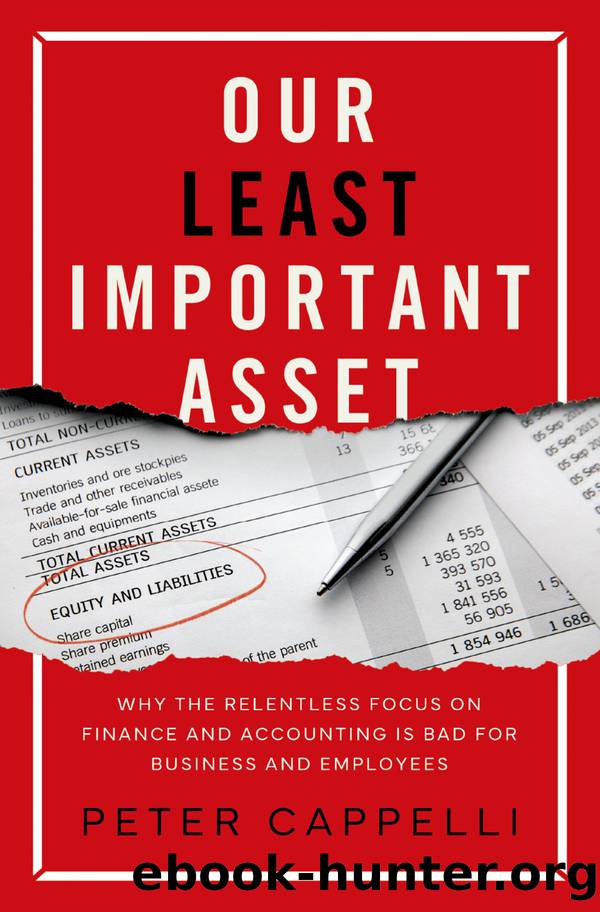Our Least Important Asset by Peter Cappelli

Author:Peter Cappelli
Language: eng
Format: epub
Publisher: Oxford University Press
Published: 2023-08-15T00:00:00+00:00
Effects on Employees
As noted earlier, where vendors are the employer of record of the liquid workforce, the workers onsite for clients are only partially responsible to the client even when the client is a co-employer. All the practices that employers can use to motivate and engage their regular employees, from compensation and benefits to organizational culture to effective supervisors, are largely off the table with the liquid workforce. In practice, this means the organization where these workers do their jobs has largely given up on managing them. The borrowed servant doctrine in employment law allows the client to direct the work being performed by those liquid workforce workers, but that does not include the broader practices of management, such as rewarding employees, setting performance targets, and measuring them.99
What it means for employees to have these split authority structures is not well known. An older literature on boundary spanners, such as sales employees who spend more time with clients than with their own employer, highlights the difficulties when obligations conflict; an equivalent literature on dual allegiance for unionized employees who had obligations to their union and to their employer shows similar tensions. What it meansâespecially for the leased employees who work full-time and for more than a year onsite for a client but are employed by an organization that arguably has more power over them and who they see lessâremains unexplored.100
Assuming the liquid workforce model means the transfer of some jobs from one organization to a vendor, the net effect depends on what the jobs are like in each organization. For some tasks, such as accounting, law, and management consulting, outsourcing means pushing those jobs to professional service firms. It is true that doing so eliminates the possibility that accountants, lawyers, and strategic planners will ever get to be operating executives in those corporations, but they may well be better paid accountants, lawyers, and consultants with more autonomy than they would have had in the corporations.
The changes that get the most attention and that involve more employees are at the bottom of the corporate pay scalesâjanitors, food service workers, gardeners, and so forth. In corporations, employees in those jobs had similar benefits to other employees, in part encouraged to do so by IRS regulations and laws like the Affordable Care Act, which prohibit having better healthcare benefits for some employees than for others. As others have noted, a janitorial service that only does that work might be less likely to offer benefits like healthcare to its employees or have compensation systems that tie janitor pay at least in part to the pay of higher-paid employees. When a bank or other large corporation outsources its janitorial work, it is quite likely that the individuals doing that work will have lower pay and less access to benefits than janitors employed by the bank would have.
The other consequence is that their career paths become more limited. It was possible to work oneâs way up from the shop floor at companies like UPS when virtually all positions were filled from within by people who began as loaders or drivers.
Download
This site does not store any files on its server. We only index and link to content provided by other sites. Please contact the content providers to delete copyright contents if any and email us, we'll remove relevant links or contents immediately.
| Ethics | Etiquette |
| Fashion & Image | Health & Stress |
| Motivation & Self-Improvement | Work Life Balance |
| Workplace Culture |
Tools of Titans by Timothy Ferriss(8347)
Change Your Questions, Change Your Life by Marilee Adams(7718)
Deep Work by Cal Newport(7040)
Playing to Win_ How Strategy Really Works by A.G. Lafley & Roger L. Martin(6186)
Man-made Catastrophes and Risk Information Concealment by Dmitry Chernov & Didier Sornette(5981)
Digital Minimalism by Cal Newport;(5740)
Big Magic: Creative Living Beyond Fear by Elizabeth Gilbert(5726)
The Slight Edge by Jeff Olson(5398)
Ego Is the Enemy by Ryan Holiday(5392)
The Motivation Myth by Jeff Haden(5191)
The Laws of Human Nature by Robert Greene(5136)
Stone's Rules by Roger Stone(5065)
Tuesdays with Morrie by Mitch Albom(4753)
Eat That Frog! by Brian Tracy(4500)
Rising Strong by Brene Brown(4431)
Skin in the Game by Nassim Nicholas Taleb(4224)
The Money Culture by Michael Lewis(4174)
Bullshit Jobs by David Graeber(4162)
Skin in the Game: Hidden Asymmetries in Daily Life by Nassim Nicholas Taleb(3973)
